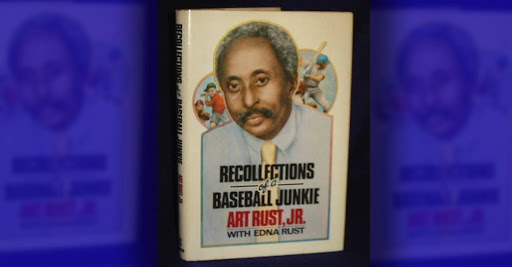
By Stacy M. Brown, NNPA Newswire
In the glitzy world of sports talk radio, where mega-contracts make headlines and charismatic hosts dominate the airwaves, there is an unsung pioneer whose name rarely echoes through the halls of fame. Art Rust Jr. Rust was born in Harlem on October 13, 1927, and died in 2010 at 82. He was a maverick who changed the game of sports broadcasting. His career included stints at WNBC, WMCA, and WINS Radio before he emerged as a pivotal figure with his groundbreaking show, “Sports Talk.”
Rust’s “Sports Talk” was a game-changer, giving fans a platform to engage in conversation for three hours every night. Initially hired to host the Yankees Pre-Game show, Rust was on air every night from 6 p.m. to 9 p.m. during the summer strike, which birthed an all-sports talk radio show that captivated disheartened baseball fans and laid the groundwork for the likes of WFAN, which emerged in 1988 with an all-white crew and not even a mention or an invitation to Rust.
Longtime listener Alex Belth recalled listening to Rust in the early 1980s, and how he tried to get up the nerves to call in and ask if Reggie Jackson would hit 500 home runs. “For years, I listened to Art Rust Jr. His voice was knowing and sure,” Belth recalled. In an era where sports talk hosts command staggering salaries, there’s little reminder of Rust, a Black man who sowed the seeds that both white and Black sportscasters are reaping. Some equate today’s hosts with baseball players who fail to recognize former St. Louis Cardinal great Curt Flood.
Flood won seven consecutive Gold Glove Awards beginning in ’63 and hit better than .300 in six of his 12 years with St. Louis. Flood who, upon being traded to the Phillies on October 7, 1969, took a stand that would effectively end his career and change the sport forever.
He penned a letter to Commissioner Bowie Kuhn in which Flood began his fight against the reserve clause, which bound a player to one team unless that club chose to trade or release that player. After Kuhn refused to grant Flood free agency, Flood filed a lawsuit against the Commissioner and MLB, alleging a violation of antitrust laws.
However, in 1976, the reserve clause disintegrated, and the groundwork for free agency as we know it today was laid. “The fact that Curt Flood, one of the best all-around players of his generation, was willing to risk it all for others is one of the greatest displays of personal sacrifice known to the sports world,” said Tony Clark, the executive director of the MLB Players Association.
Flood’s fight forever transformed baseball economics. The average salary of an MLB player in 2023 was $4.9 million, or about ten times the amount Flood made over his entire 15-year career. Art Rust Jr. is their Curt Flood for those hosting talk shows about baseball and other sports. And, like most baseball players who reap the spoils of modern economics thanks to Flood, sports talk show hosts rarely, if ever, extend a thank you to Rust.



